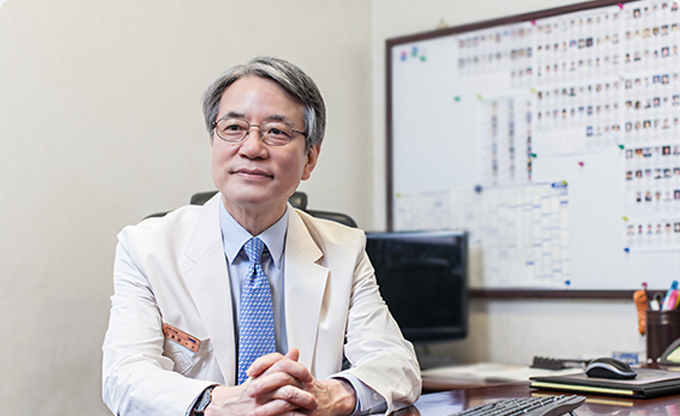Patients' Rights and Responsibilities
Patients' Rights
1. Right to receive medical care
Patients have the right to receive proper care in a safe setting without discrimination nor should their right to care be violated regardless of their gender, age, religion, social status, nationality, language, race, or physical/mental/financial status. Medical teams shall not refuse to provide care without justifiable reason.
2. Right to be informed and to make an autonomous decision
Patients have the right to obtain full and complete information from their medical team, to ask questions, and to determine their agreement or refusal concerning: diagnosis, treatment (purpose, plans and methods), outcomes of care (including unanticipated outcomes), discharge plan, participation in medical research studies, organ transplantation/donation, etc. Within ethical boundaries, patients may discontinue or refuse treatment, request that the medical team explain and suggest alternative treatments, and reserve the right to make their own decisions.
3. Right to confidentiality
Patients' rights to confidentiality regarding their physical/health status and privacy will not be violated. Patients can expect that all medical records/reports and their personal privacy will be kept confidential unless the patient has given consent or disclosure is permitted by law. To ensure their privacy, patients may be informed that Individuals not directly involved in their care may not be present and that the number of guardians accompanying patients to consultation rooms may be limited.
4. Right to request consultation and mediation
In the event of a medical dispute, patients may request consultation and mediation from an internal or external agency (Korea Consumer Agency, Korea Medical Dispute Mediation and Arbitration Agency).
5. Right to have values and beliefs respected
Patients will not be discriminated against because of their culture, religious values, or beliefs, and their rights will not be violated.
6. Right to receive care in a safe setting
Patients have the right to receive hospital-provided care where the patient’s medical information is protected and patient safety can be assured. In addition, patients have the right to be protected from possible dangers that can occur in a hospital and to have stability of mind and body.
Patients' Responsibilities
1. Responsibility to trust and respect the medical team
Patients must accurately inform the medical team of their health condition and must trust and respect the medical team's treatment plan. Patients may be responsible for consequences that result from not following instructions.
2. Responsibility to not use dishonest methods for medical treatment
Patients must reveal their identity before receiving any medical care and must not use false or dishonest methods, such as seeking medical care under disguised ownership.
3. Responsibility to abide by all hospital regulations
Patients are expected to treat all hospital staff and other patients with courtesy and respect; to abide by all hospital rules; and to earnestly fulfill their financial obligation to the hospital. Also, patients and their family members are expected to participate in all safety regulations.
